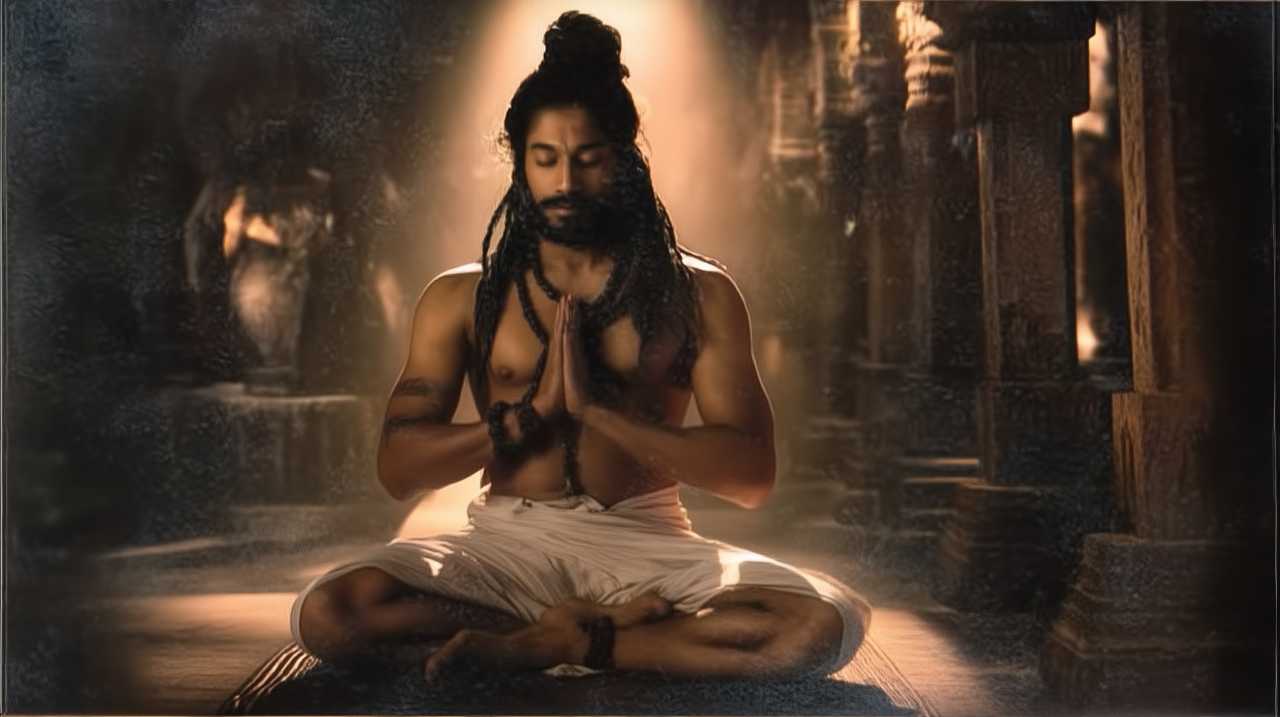
Most people have experienced ordinary love in their lives, whether between a mother and child or a boyfriend and girlfriend. However, this kind of love is physical and self-centred—it lasts only as long as needs and demands are met. You haven’t yet known that true and unconditional love. I say, if you haven’t tasted Divine love even for a moment, you haven’t really lived yet.
Who Will Feel This Longing?
There is a beautiful shabad in the Gurbani that begins with “Har bin reh na sakhe man mera”—“I cannot live without my Lord.” This line conveys the same anguish a child feels when separated from its mother, or a fish pulled out of the sea, desperate to return to the water.
To say, “I cannot live without my Lord” reflects a rare and unusual longing that is difficult to explain. How and why such a yearning arises or doesn't is indeed mysterious.
Vairagya
In my youth, I would sit at the feet of those great Masters who visited our home, listening to them and practising whatever they mentioned. Once, a Mahatma said that if one lived solely on water for 21 days and chanted a certain mantra, one would encounter God.
So, I stopped eating and started chanting that mantra. It was to be done for six hours, sitting unmoving in one position. I was still a schoolgirl, so I did one session before school and one after returning home, hardly sleeping more than a few hours at night. My parents grew worried. I would pretend to eat in my room, while secretly feeding my meals to the cows and dogs, remaining hungry. It was a severe form of penance, but I wanted that and was willing to pay the price.
By the 15th day, my body had become thin, so my mom told Swamiji about it. He asked me if I wasn’t eating; I said no. “Why are you not eating?” I told him about the sadhana he mentioned, and that it was my 16th day. He was amazed, but said it wasn’t supposed to be done at such a young age. He patted my head for a long time, gently saying, “Don't do this, don't do this...”
I was crazy like that. The crux is this: when your mind is attached to worldly relationships, they seem like everything to you. But if your mind has that fire of vairagya (dispassion), these relationships lose their grip. In many previous lives, you had families and houses you called your own. Then you died, leaving everything behind. We don't even recall those who were once our heart and soul. When someone realises this deeply enough, how can they remain attached to present relationships? Then the mind will begin to seek what God is—and where.
Who the Hell Is God?
See, people have mostly settled for a compromise. They take an image or statue and say, “This is Bhagwan.” Others say that God can’t be seen and lives somewhere up in the sky, or that God is nameless and formless. Buddha said that there is no God, only shunyata (emptiness), and the world is an ever-changing illusion. Christians, Hindus, Muslims, Jains and Sikhs all have their own ideas of God, and people are happy with their concepts. Your concept differs from others’, and that's why we have more than 375 religions in the world.
In all this, the mind gets confused and says, “Forget this nonsense of God, it is just a myth. Let's enjoy the world that we can see and relate to—eat, drink and be merry.” Communists the world over sing, “God is dead.” Yet here comes this shabad that says, “I cannot live without God.” How difficult, for God's sake!
Kabir Sahib beautifully said that when you eat a delicious sweet, you simply enjoy its sweetness. But if someone else wants to know how it tastes, can you explain the sweetness? The taste is to be experienced; it can’t be conveyed through words. Kabir says that God can only be tasted, not explained. Instead of getting lost in theories, go directly into tasting God.
Now, what does it mean to taste God?
Journey Within Through Sadhana
The Divinity is right within you, as the very foundation of your mind and consciousness. However, your mind is constantly preoccupied with objects, people and events. Even at night, it remains active in the form of dreams. There is not a single moment when your mind stops its wanderings, and thus, you miss the opportunity to realise the Divine.
To experience the Divine, you must turn your mind inward through yoga sadhana. This is the sequential process:
1. Stopping the outgoing tendencies of the senses and mind
2. Stilling the mind
3. Digging into the deeper recesses of the mind
4. Transcending the mind to reach Divinity
In the final stage, you go beyond the mind and meet the Beloved, who was always there, but you were not able to see Him.
Become A True Yogi
Unless you follow these four steps diligently, these blissful experiences of Divine love will not come into your life. That’s why we teach you the methods to turn your mind inward and bring its restless wanderings to a full stop.
This is the purpose of sadhana, spiritual practice. First, you stop the mind’s compulsive thinking, then you attain stillness of mind, enabling you to dive into that pristine and pure inner consciousness. And the fourth stage is transcending the mind in totality.
One who has transcended the mind is considered a yogi—not merely someone who performs asanas. Twisting your body like a pretzel doesn’t make you a yogi; even a gymnast can do that. Becoming a yogi means transcending the mind, and that won’t happen just by listening to discourses. You must practise diligently and progress through these successive stages.
Note: This talk is drawn from a 2018 meditation retreat held in Florida. Revered Gurudev Anandmurti Gurumaa periodically leads meditation and yoga retreats at Rishi Chaitanya Ashram as well as in various locations around the world. Learning these ancient yogic methods in the presence of the Master offers the perfect opportunity to begin your journey of sadhana. To receive updates on upcoming retreats and satsangs, follow us on our social media channels.







